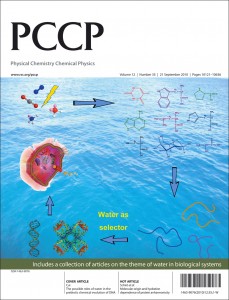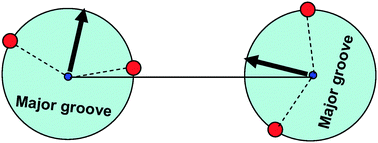PCCP is delighted to announce a high-profile themed issue on Multiscale Modeling, which will be Guest Edited by Professors Matthias Bickelhaupt, Peter Bolhuis and Lucas Visscher (Amsterdam Center for Multiscale Modeling, VU University). It is our pleasure to invite you to submit to this themed issue.
Submission Deadline: 13 December 2010
Submit a paper
The themed issue will be published in PCCP in 2011 and will be displayed at relevant conferences in summer 2011 to maximise the visibility of the work published.
While multiscale modeling is already an established approach in some areas of physics and material science, its application in physical chemistry and chemical physics is still emerging. Within these disciplines, the approach connects the established fields of quantum chemistry, atomistic molecular dynamics, computational material science and bioinformatics.
Multiscale modeling can be roughly defined as the concurrent study of the different time and length scales relevant for complex chemical, physical or biological processes. The significance of such an integral view for important processes such as photosynthesis, protein folding, DNA replication, catalysis, self-organization in soft matter, etc. is clear. With issues in multiscale modeling primarily discussed in the literature of the parent fields, cross-fertilization between the different fields is still limited. This PCCP themed issue will bring together papers that address the multiscale aspect of various applications and functions and will act as a reference point to researchers new to this developing field.
Submissions should be high quality manuscripts of original, unpublished research. Both Communications and Full Papers can be submitted for consideration. All submissions will be subject to rigorous peer review to meet the usual high standards of PCCP.
Please do pass this invitation on to any relevant colleagues, or let us know if you have any suggestions of people to invite. The deadline for submissions to the themed issue is the 13th December 2010, though submissions before this date are of course welcomed.
Matthias Bickelhaupt, Peter Bolhuis and Lucas Visscher
Guest Editors












